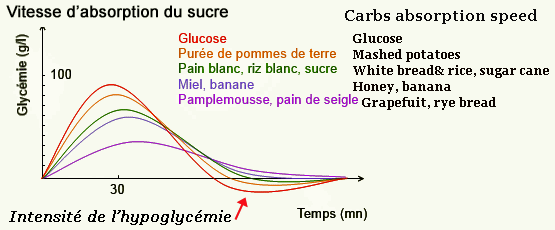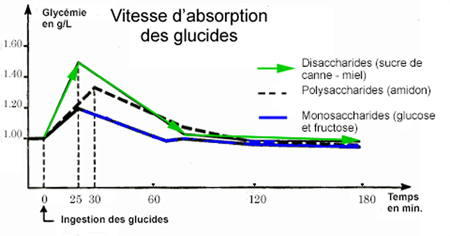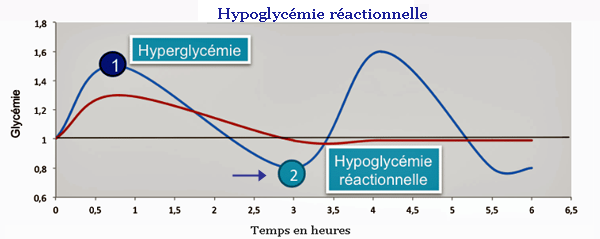How to stabilize blood sugar during COVID illness?
-
Hello new Friends! I am wondering about how to stabilize blood sugar while sick with COVID. I drink a mixture of o.j. with baking soda, followed by milk with sugar, (about 3Tbsp per cup), every hour. A few times throughout the day, I eat a Tbsp of homemade gelatin with this mixture. My blood pressure, systolic only, goes up before the end of the hour, and drops again after consumption of the mixture, indicating that cortisol/ adrenaline are rising from a drop in blood sugar. I am wondering how to stabilize it. I found this study: https://www.sciencedirect.com/science/article/pii/S000709121730572X
The milk doesn't even fully empty the stomach in an hour, so I am unsure about consuming the same mixture in lesser amounts more frequently. Everything is slowed down, as well, so bloating is an issue. I have also thought about adding a bit of ground mushroom that I cooked for 3 hours to sustain blood sugar levels, but I am not sure how that would work with trying to consume milk and o.j. on a frequent basis. Do you know of any anecdotal experiences or studies that address this issue? My current regime did get me out of chronically elevated high blood pressure (systolic only), with the illness. Now the b.p. is only elevated before the end of the hour. The milk with the sugar is what noticeably decreases the b.p. (I learned this tip from Dr. Peat.) -
@RPadmirateur said in How to stabilize blood sugar during common illness?:
I am wondering about how to stabilize blood sugar while sick with a cold.
Sorry to hear you have a cold.
@RPadmirateur said in How to stabilize blood sugar during common illness?:
I drink a mixture of o.j. with baking soda, followed by milk with sugar, (about 3Tbsp per cup), every hour. A few times throughout the day, I eat a Tbsp of homemade gelatin with this mixture.
Eat 3 "solid" meals a day, add a bit of extra salt and moderate your fluids around them. Less total and/or more tonic. Be careful with water in particular. Regiment yourself, because your smell, taste, hunger and thirst is probably off right now.
Others would be better recommending supplements, but small amounts of aspirin and taurine are always useful.
Blood pressure and sugar swings are understandable to me. Particularly if you've been doing silly, unseasonal things with fluids. I think hydrodynamics have a lot to do with this.
-
@RPadmirateur said in How to stabilize blood sugar during COVID illness?:
I am wondering about how to stabilize blood sugar while sick with COVID.
Need extra vitamin E ( minimum 2 tocols) for 2 weeks to fight properly Covid.
Here is useful info on the management of glycemia
https://mirzoune-ciboulette.forumactif.org/t389-index-glycemique-des-laits-vegetaux#3017
Note: In French (translator needed) but there are links in English (sources).- GI of cow milk and vegetable milks
- Understanding glycemic index (GI) and glycemic load (GL).
- Low sugar and quick sugar: false concept
- Impact of milk and yoghurt on insulin spikes
- Potassium and impact on glycemia + Diabetes
- RP’s article explained: “Glycemia, starch and sugar in context”
- Calcium absorption rate
- Dress your carbs: Why food order matter.
Direct links to the post (same post)
- Potassium and impact on glycemia
https://mirzoune-ciboulette.forumactif.org/t389-index-glycemique-des-laits-vegetaux#25572
=> Insulin and potassium relationship. Potassium and Diabetes: Understanding its Importance.
- translated excerpt from RP: Glycemia, starch and sugar in context.
- Cortisol & glycémie: Le cortisol comme chef d’orchestre
- Analysis of different kinds of milks
https://mirzoune-ciboulette.forumactif.org/t389-index-glycemique-des-laits-vegetaux#28407 - Calcium absorption rate
https://mirzoune-ciboulette.forumactif.org/t389-index-glycemique-des-laits-vegetaux#28412
=> Ca absorption is dose-dependent. Calcium bioavailability from different sources.
=> How is Ca absorbed (graph): Link between hormones, vitamins D and K2 and calcium. - How is your breakfast with flakes or oat impacting your daily management of glycemia.
https://mirzoune-ciboulette.forumactif.org/t389-index-glycemique-des-laits-vegetaux#28608
- Graph. And link towards Jessie Inaupsché book.
=> Dress your carbs.
Example: A breakfast that moderates the blood sugar peak has a positive influence on insulin management for the rest of the whole day!
- Why food order matters
https://mirzoune-ciboulette.forumactif.org/t389-index-glycemique-des-laits-vegetaux#28711
=> Vegetables first – meat (with fat) – carbs. + Graphs.
-
Two things first and foremost, oxygen and carbon dioxide.
Lungs need to be able to take in oxygen freely. Metabolism has to be of the predominantly based on sugar, and it has to mitochondrial to produce enough CO2 internally. If metabolism is impaired for whatever reason, endogenous CO2 can be supplies via carbogen breathing, which is the best way to go about it. But if carbogen is unavailable, intake of carbonated water and baking soda will also help a lot. Instead of baking soda, magnesium bicarbonate may be taken especially as that supplies magnesium, which is often deficient in most people.
This will go a long way towards restoring the body to metabolic health, to restore the body' ability to defend and heal itself.
-
@RPadmirateur Sugar with some saturated fat stabilizes blood sugar better than sugar alone or starch. For example dates with butter or honey with cream
-
@ThinPicking Thank you for your reply. I would love to be able to just eat 3 solid meals per day and be okay. But I have the SARS-CoV-2 virus and have been really sick for over a month. I used to do consults with Ray Peat, and we email back and forth a lot. During other times of complete duress, he recommended removing all proteins and fats in the short herm, other than the fat in 1% milk, and drinking very frequent sugary 1% milk. Orange juice was inferred in our emails, but everything else was recommended to remove, until I could get my split blood pressure down. He said that a high systolic and normal diastolic meant very high cortisol, and the aforementioned was his remedy. However, this was for a short term. I have brought my b.p. down from 192/69 to 116/67, following this regimen. However, since I have been sick for so long, and still have lesser b.p. swings by the end of the hour, eg., 153/78, I still need to tweak something.
-
@yerrag Thank you for your reply. I try to take a CO2 bath in a bag daily, (although many days, I am simply too tired). I also take baking soda with my hourly orange juice and bag breathe a few times per day. Interestingly, my blood pressure split is exacerbated by the CO2 bath. Not sure why, maybe I stay in too long and get too hot, which could be a stressor. I am still trying to figure it out.
-
@LucH Thank you for your reply and links. I due consume more vitamin E in the form of Progest-E. Right now, it's the only thing that helps me sleep. In Ray Peat's Blood Sugar, Starches, and Carbohydrates in Context Excerpt, he states that "Glucagon, cortisol, epinephrine, growth hormone, and the thyroid all tend to raise blood sugar." Cortisol and epinephrine also spike when blood sugar drops. And as I recall from my RP notes, too much T3 can also lower blood sugar too much, spiking cortisol and epinephrine. I am hypothesizing that given the relative increase in thyroid stimulating foods, milk, o.j., and gelatin by eliminating all other foods, that perhaps I need to taper down my normal doses of T3 supplement, so that I can make it an hour without my cortisol/ epinephrine rising, as indicated by my b.p. split systolic starting to rise. Lmk what you think.
-
@yerrag I had to eliminate fat in order to get my dangerously high systolic b.p. down. I was up to 192/69. Reread my R.P. notes and he suggested to remove all fat and protein, except in 1% milk, and add lots of sugar to milk to bring the split down, which it has. I still have some rises in systolic pressure by the end of and hour, and especially at the end of the day, but more in the 130s-150s range. I wish it were as simple as adding fat, but right now, that causes dangerously high systolic b.p.
-
@RPadmirateur said in How to stabilize blood sugar during COVID illness?:
too much T3 can also lower blood sugar too much, spiking cortisol and epinephrine.
I won't say it so.
When more T3 is used, it burns more benzine. Probably / logically if you tell the engine to speed up.
So the uptake of sugar must be in adequation, Rather available immediately (glucose and glycogen if your liver functions well). With fibers and fat from food when eating carbs to optimize the flux.
But if it's OJ, yoghurt and corn flakes, you'll have soon after (1-2 hours later) a problem: Cortisol secreted. Cortisol is used to degrade muscles and get fuel (carbs).
And by the way, it's not when adding 1 tbsp. sugar cane in your morning coffee you're going to solve the problem.
In process (come back). -
Blood sugar and carbohydrate absorption speed
Source: Montignac > blood sugar > Physiology of intestinal absorption
Not all carbohydrates are absorbed in the same way: 400 K/cal. of lentils is not equivalent to 400 K/cal of potatoes. For the same amount of carbohydrate, consuming lentils provides three times fewer available “calories”.
Figure 1: Carbs absorption speed (with food stuffs)

Credit : http://www.montignac.com/fr/sucres-lents-sucres-rapides/There is no slow or fast sugar. This is a misconception!
Figure2: Carbs absorption speed (with sugar types)

Green spot: disaccharide (sugar cane, honey)
---: Polysaccharide: starch
==: (blue spot): monosaccharide (glucose & fructose)
Note: Milk and yoghurt are special cases (growth homone).Useful link (in French, excerpts from the book) (with pictures to illustrate the comments)
Book : Glucose Révolution – Jessie INCHAUSPÉ
https://mirzoune-ciboulette.forumactif.org/t1925-glucose-revolution#26942- “food order and postprandial changes”: The ideal order of foods: fiber – proteins (with fat) – carbohydrates. The fibers ingested first considerably reduce the glucose peak caused by sugar.
- Learn how to smooth the blood sugar curve, with examples. This way you can better manage possible weight gain or lost energy capacity.
-
@LucH - Thanks for the link. In my amateur, this portion of your site might be most applicable.
## Reactive hyperglycemia with a snack
Message Luc Mon Aug 15 2022 - 4:40Here's what will happen if you don't precede the snack with a protein Note that the sinusoidal curve will probably be tighter (hunger after 3 hours). But since a king cake is quite rich in MG, this could pass for those who go for a short 10 to 20' walk after dessert. Slowed transit and expenditure of glycogen stored in the muscles.
 Glucose Revolution Glycea11
Glucose Revolution Glycea11There are lots of images of glucose responses on the RPF at the thread:
Observations from using a continuous glucose monitor - Jessie Inchauspé -
There's some inappropriate humour in my rewrite. By all means, call it what you want. It's just that I won't for looming consequence on the song sheet and doubts about its novelty.
Elimination sounds accurate for a test at least. It does seem a bit strange you're recounting that without mentioning salt. He advised you to consume "thick" drinks without adding salt to them? While alluding to cortisol.
-
@ThinPicking All I know is that I have never been this sick and for this long in my 64 plus years. It is also different in that it went directly to my lungs, and incessant, severe and wheezing coughing for weeks on end, sometimes wondering if I would pass out for want of air.... Definitely severe acute respiratory distress. Anyway, salt is super important, for sure! I have been consuming probably close to 3 TBSP baking soda throughout the day, with my o.j. I literally ladle in bits at a time, so the CO2 won't all be released into the air. I do also add NaCl to my gelatin, and sometimes to my milk with sugar.
-
Thank you for taking the time to do your replies. In response, I can only send you some Ray Peat quotes for an email thread of when I was experiencing severe insomnia. It brought me to the conclusion of what I am currently doing, after trying to eat regularly, 4 meals a day with protein and coconut oil and my fiber meal, and failing miserably while having this severe respiratory illness. (When I got sick, nothing worked, including digestion!)
Ray Peat: Have you tried having a large amount of carbohydrate during the night? The morning stress results from failure to maintain glucose oxidation during the night. A fat free diet might help you to increase glucose oxidation efficiency.
Ray Peat raypeat@gmail.com
Feb 14, 2022, 5:01 PM
to meEliminating fats (ice cream, coconut oil) for a while might improve your carbohydrate metabolism and lower the stress hormones. Some people have good results from starchy foods at bedtime.
Ray Peat raypeat@gmail.com
Feb 14, 2022, 6:52 PM
to meNo, I think the fat late in the day is likely to be most disruptive to good sugar metabolism; increasing calories of carbohydrate can lower stress hormones.
Ray Peat raypeat@gmail.com
Feb 15, 2022, 7:35 PM
to meTemporarily (4 or 5 days) cutting out eggs and cheese, and limiting coffee to mornings, and increasing calories from carbohydrate should improve the depth of your sleep, as your metabolic rate increases. It should raise your temperature a little.
Ray Peat raypeat@gmail.com
Feb 16, 2022, 2:27 PM
to meI think the amount of fat in 1% milk would be o.k.
-
@RPadmirateur said in How to stabilize blood sugar during COVID illness?:
All I know is that I have never been this sick and for this long in my 64 plus years. It is also different in that it went directly to my lungs, and incessant, severe and wheezing coughing for weeks on end, sometimes wondering if I would pass out for want of air.... Definitely severe acute respiratory distress.
You'll get well. Do you have observance of a heart in your midst. Or non-poetic, is someone looking after you?
If not and if not already, consider getting checked out. ARDS protocol's more sane now. We're not in a "crisis".
@RPadmirateur said in How to stabilize blood sugar during COVID illness?:
Anyway, salt is super important, for sure! I have been consuming probably close to 3 TBSP baking soda throughout the day, with my o.j. I literally ladle in bits at a time, so the CO2 won't all be released into the air. I do also add NaCl to my gelatin, and sometimes to my milk with sugar.
If you're going to continue liquid-only like this, perhaps just record the weights of sugar and salt you're adding. Paired with the amount of milk or orange juice you can make them a bit more physiologically accurate, so you're not creating an unmanageable osmotic stress and making this worse.
I'd rather you eat though. Honestly.
Don't go anywhere.
-
@RPadmirateur, was Ray aware of your bloating? I’m wondering if a food you’re not digesting well could be affecting your blood pressure/pulse pressure and blood sugar? Have you tried cutting out the milk and having just sugared OJ and homemade gelatin/salty gelatinous broth or cutting out the OJ and gelatin and having just sugared milk?
-
@ThinPicking Yes, thank you, someone is looking after me. And yes, I do measure the sugar and baking soda. I am trying to eat more gelatin, plus I tried some cheese and solid fruits ,and space intake in 4 meals, with sipping a bit of o.j. between meals, cut back on sugar in milk. It is turning out badly, with systolic b.p. back in the 170s. I have been taking 4 1/2 - 5g of aspirin, spread throughout the day, up from my usual 1500mg.
-
@Jennifer Thank you for your thoughts. This has been a process, and I have been eliminating things as I went, since nothing seemed to digest. Today, I added some cheese, (Asiago, naturally aged with animal rennet), and that has elevated my b.p., but it could be more that I haven't eaten as much sugar...I am not sure. I have tried different milks and different orange juices, but I haven't tried omitting either the milk or the oj. That is something to consider. Overall, the bloating this time around has lessened as I heal/ am less in crisis.
-
@LucH I have been thinking about and trying the "ideal order of foods: fiber – proteins (with fat) – carbohydrates. The fibers ingested first considerably reduce the glucose peak caused by sugar." I used ground white button mushrooms and hard cheese + gelatin, (homemade) for the protein with fat, and whole fruits for the carbohydrates, plus 1% milk My systolic b.p. is back up in the 170s. I do have experience with a CGS monitor in the past, when I also had b.p. issues with insomnia, and the spike, as well as the dips, did, in fact, cause a surge in blood pressure. I just don't know how to get in more sugar without creating these surges, since it seems that not assimilating enough sugar during times of stress, (current COVID infection), is what raises my b.p. Also, I know from experience that starches are completely OUT when I am under stress...I simply cannot digest them.